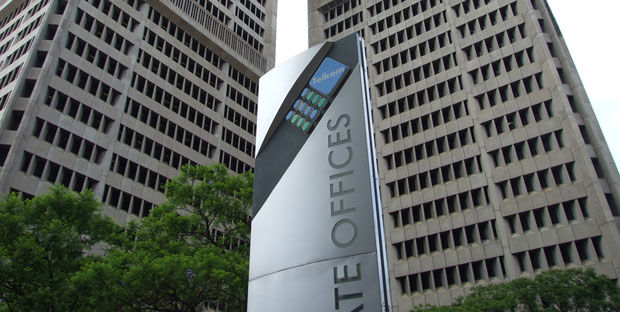
Government has not yet made any decisions about whether it will buy out minority shareholders in Telkom and delist the telecommunications company from the JSE and discussions about the company’s future remain “exploratory”.
That’s the word from public enterprises director-general Tshediso Matona, who was responding to a question from TechCentral at the annual general meeting of state-owned telecoms infrastructure company Broadband Infraco on Friday.
“One can’t preempt what the shareholding will be at this stage,” Matona says. “It could well be that the private shareholding [in Telkom] is maintained or that the shareholding is bought out and the company is delisted.”
He says there are ongoing discussions in government about the need to rationalise the state’s information and communications technology (ICT) assets, and that the departments of communications, public enterprises and public service & administration are in constant talks about how best to achieve this.
“All the players in the state … accept that the current fragmentation in state ICT and broadband assets lessens our leverage as a state to advance [broadband] penetration,” Matona says. “The department of communications should lead this.”
He adds that he expects there “could be consolidation” between state-owned ICT assets and that the role of Infraco could change as a result thereof. “At the moment, though, we are building the company on the terms on which it was licensed.”
No active talks are taking place about merging Infraco and Sentech, the state-owned broadcasting signal distributor. A merger of the two entities has long been discussed in government but no progress has been made in this regard.
Matona emphasises that no decisions have been made yet about how the state’s ICT assets will be consolidated. “It’s an idea that’s being explored,” he says. “Clearly, we can all see the potential benefits.”
Public enterprises minister Malusi Gigaba says government is looking at ways it can “optimise its capacities” in broadband to expand connectivity. That could mean a closer alignment between Infraco, Sentech and Telkom. “We are committed to alignment and working together and, led by our directors-general, we are in discussions about how to structure that alignment.”
Gigaba says SA has fallen behind even some poorer countries in Africa in delivering broadband services and that this should be seen not as a “negative” but rather as a “challenge” for government.
He says one of the reasons SA is lagging in broadband is the “dispersal of our ICT assets as the state; some policy and regulatory issues; and the fact that SA, even at this moment, doesn’t have a national, integrated broadband strategy”.
He says the department of communications is leading the initiative to develop that strategy. But, he says, this strategy is only one element of the solution.
“The other is the consolidation of state assets in ICT, and particularly in broadband,” he says. “Government and the ruling party are of the view that infrastructure provision, particularly in certain areas, requires that the state should play a bigger role in facilitating that provision [by] providing services to underserviced areas. That’s why it’s so critical we should hasten our own actions.
“We have to reduce the cost of broadband communication at the same time that we expand services and penetration and ensure that we are able to consolidate our assets as the state to meet the objectives that we have,” Gigaba says. — (c) 2012 NewsCentral Media




